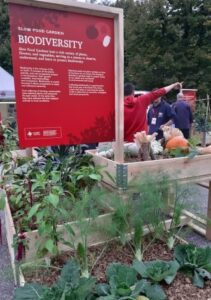
Civil Society, Democracy, Featured, Global, Global Governance, Headlines, Human Rights, IPS UN: Inside the Glasshouse, TerraViva United Nations

In Lima, Peru, during a 2021 national demonstration by indigenous women movements. Credit: Felipe Caicedo
– Information manipulation and misinformation are not new phenomena, but they have taken on exaggerated importance, especially with the massive use of social media.
Hostile and stigmatizing narratives against civil society and civic activism, whether intentional or not, especially when propagated by authorities, create undue restrictions and hinder the exercise of the rights to freedom of peaceful assembly and of association globally, and is contributing to the growing authoritarianism and the closing of civic space.
Different types of unjustified narratives are being used globally to target and silence civil society activists and protests: i) accusations of threat to State security and terrorism, facilitated by broad anti-terrorism laws. ii) labels related to treason to the nation and the national influence, including calling ‘foreign agents’ or ‘agents of foreign influence’ to organizations that receive foreign funding. iii) ‘anti-development’ rhetoric used to target land right defenders and climate justice activism. iv) narratives exploiting discrimination and structural racism, including sexual and gender-based violence, and attacks to associations aiding refugees and migrants; among others.
The problem is that these stories, labels and narratives do not remain solely in the discursive field. Activists subjected to stigmatization, and their families, face intimidation, physical attacks and online harassment.
Branding civil society, movements and activists as “terrorists” or “traitors” has a serious impact on their lives, well-being and economic situation; it silences them and leads to the defunding of associations and their illegal dissolution.
The broad chilling impact created by the stigmatization of civil society and assemblies leads to further severely restricting the ability of people to participate fully in society, exacerbates inequalities, fosters environments of fear and hostility, increases polarization and erodes trust between authorities and the public.
This hostile atmosphere provides fertile ground for the emergence of the anti-rights movements and rhetoric, and erode democracy.
Its impact is especially deeper for individuals and groups that already experience heightened barriers to exercising their freedoms and are subjected to inequality, marginalization, racism, discrimination and violence because of, among other grounds, their gender, race, ethnicity, religion, age and/ or migration status.
Stigmatization is disseminated by a broad set of actors, including political actors, state officials, and non-state actors, often supported with disinformation and smear campaigns, as well as populist rhetoric by authorities and public figures.
I have found a mutually reinforcing cycle of stigmatization, restrictive laws and repression of civil society and activism. Hostile and stigmatizing rhetoric leads to sweeping restrictions, adoption of restrictive laws, including imposition of excessive regulations, burdensome administrative requirements and heavy sanctions and criminalising associations while cutting off their funding.
These measures further fuel stigmatization and empower actors spreading stigmatizing narratives.
Also, stigmatizing narratives, especially when spread by those in power and amplified by the media, has legitimized repression of activists and peaceful assemblies. Whereas the unjustified heavy-handed law enforcement tactics and criminalization of protesters and activists have led to furthering stigmatization and delegitimizing the legitimate goals of the peaceful assembly.
There are several initiatives to respond and counter harmful narratives against activism, CSOs and assemblies. First, countering anti-rights narratives and developing narratives promoting messages to reinvigorate public support for democracy and human rights is crucial. All the initiatives that are changing the narratives based on hate for messages that are supported in hope need to be multiplied.
Hate is a better transmitter of stigmatization that hope.
Also, taking into account that stigmatization is forcing to silence the dissent, it is important to enhance space for dialogue and inclusion, to promote the valuable and legitimate role of civil society sector, and create a safe space for inclusive participation. When there is room for diversity of voices, silencing is more difficult.
Solidarity and building resilience are keys, to support associations targeted with stigmatizing and hateful rhetoric. Also, measuring the existence and impact of harmful narratives, including information about the long-term chilling effect that these have on the exercise of public freedoms and on other human rights allows the public and opinion-makers to have a better understanding and enable more critical debates.
Among other measures, States should ensure official rhetoric respects and supports fundamental freedoms, avoiding to use narratives and political discourse that discourage, vilify and criminalize civil society and the exercise of the right to protest.
Also, States must condemn and address harmful rhetoric, and promoting alternative narratives as well as an environment of public dialogue and inclusion in decision-making.
Fearing and persecuting dissent drives societies away from the rule of law, democracy and human rights, and claims hundreds of lives every year.
Gina Romero is UN Special Rapporteur on the rights to freedom of peaceful assembly and of association.
IPS UN Bureau



















